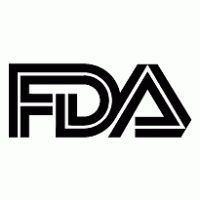Article
Unilever Dry Shampoo Products Recalled for Benzene Risk
Author(s):
Yale dermatologist Christopher Bunick, MD, PhD, discusses the recurring issue with increased levels of the carcinogen found in self-care and cosmetic products.

Multinational consumer goods company Unilever announced a voluntary product recall of various popular dry shampoo aerosol products—including those from brands such as Dove, Nexxus, Suave, TIGI and TRESemmé—due to risk of increased benzene levels, just last week.
The announced recall, per the US Food and Drug Administration (FDA), coincided with an internal investigation by the company into the cause of increased benzene exposure risk—identifying the products’ aerosol propellant, provided by an outside supplier, as the source.
As the FDA noted, benzene is a human carcinogen that, through increased inhaled, oral or subcutaneous exposure, may increase risk of leukemia and other blood cancers or disorders. While benzene is prevalent in daily indoor and outdoor environments, recalled products generally carry a substantial risk of increased exposure, and the FDA recommends affected consumers stop using recalled products and report adverse reactions to their adverse event reporting program.
Though statements from the FDA and Unilever describe the circumstance as managed and risks as mitigated, at least one expert takes issue with continued, recent faults in safety assurance for topical and cosmetic care products.
In an interview with HCPLive regarding the recall, Christopher Bunick, MD, PhD, associate professor of dermatology at Yale School of Medicine, described the issue of benzene exposure-risk recalls has actually been “growing for the last year-and-a-half.”
Bunick highlighted the Johnson & Johnson recall of prominent sunscreen and sun care brand products in 2021, which itself was a matter of manufacturing and supply chain faults. Increased levels of benzene were observed in aerosol and topical products alike, making the carcinogen a “true contaminate” of the sunscreen products.
“And the fact that it’s a contaminate is explaining why we’re finding it now in other care products,” Bunick explained. He proposed that manufacturing processes for self-care or cosmetic products be somewhat similar across the health care industry.
Between the sunscreen and dry shampoo recalls, there’s also been observed increased rates of benzene in antiperspirant and anti-fungal products, he said.
As a clinician, Bunick has had increasing encounter with concerned patients who are uncertain which products to use for either health or cosmetic purposes. “And I think dermatologists and other medical providers are going to face this question more and more: what products are safe to use?” he said. “From the health care provider standpoint, we need to understand the problem and actually have some answers to guide our patients in these situations.”
Bunick’s argument against a laxed, conservative response to the continued benzene exposure risks is the fact that it’s indeed been observed in high levels across various care products now—as he said earlier, this is the fifth such product recalled in approximately 2 years.
And in previous products recalled, there could have been anywhere from 20- to 60,000-fold increased benzene levels compared to ambient benzene in the air currently.
While consumers should be cognizant of sensations of dizziness, headaches, or other acute signs of benzene exposure, it’s the long-term risk of blood cancer and other disorders that leave Bunick and colleagues concerned.
He challenged Unilever and other companies to begin providing more information on the observations accumulated from internal manufacturing investigations— to both inform the public and aid other companies in mitigating their own benzene risks.
“The manufacturing process can be improved—this can be eliminated,” he said. “But I think there’s needs to be more transparencies by the companies and the FDA, as to where in the supply chain this problem is.”





